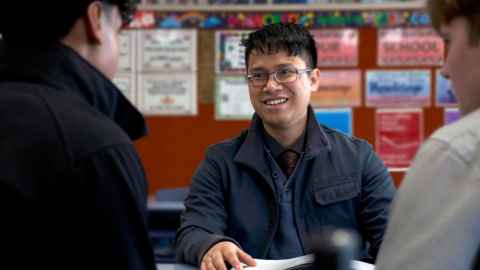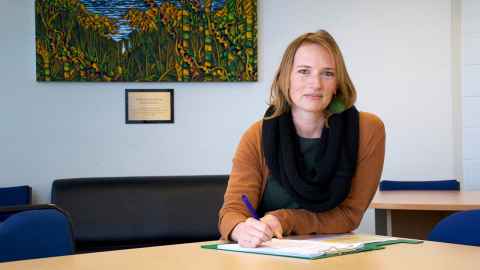
Engage in advanced scholarship and contribute your own research to the existing knowledge in your field.
Hōpara hōtaka | Explore programme
Develop your independent, research-informed practice in Elam’s vibrant, interdisciplinary environment.
Hōpara hōtaka | Explore programme
Explore how you can thrive in the age of AI. Hear insights from Professor Sir Ashley Bloomfield and more in our free expert speaker series, Thursday 2 October.
Sign up
Deepen your knowledge and advance your career with postgraduate study in education.
Hōpara kowhiringa | Explore options
Sign up to be the first to receive our latest updates.
Rēhita ināianei | Register now
Grow your skills and expand your knowledge within your particular professional context.
Hōpara kowhiringa | Explore options
Help shape the future and take the next step in your career with postgraduate study.
Hōpara kowhiringa | Explore options
Stand out in the workplace and delve into the subjects that interest you most with one of our advanced degrees.
Kimihia | Find out
Explore options for postgraduate study in the Faculty of Arts and Education, from postgraduate diploma to PhD.
Hōparatia | Explore
Additional information on enrolment, funding and resources available to postgraduate students in the Faculty of Arts and Education.
Tohu Paerua Kairangi | Postgraduate
Take a look through all of our postgraduate programmes within the Faculty of Arts and Education.
Rapua | Search
Need to talk to someone about specific subject advice? Our academic advisers can help you make the best choices for your programme of study.
Tīkina ngā taipitopito | Get details
Some postgraduate programmes require you to submit a Statement of Research Intent before you start.
He mōhiohio anō | More info
Scholarships available to postgraduate students, including guaranteed postgraduate scholarships and doctoral scholarships.
Karahipi | Scholarships
If you're considering postgraduate study and want general guidance around study planning, entry requirements or other topics, contact Student Hubs.
Toroa ināianei | Visit now
Ready to take the next step? You can start applying for your postgraduate programme now.
Tono ināianei | Apply now